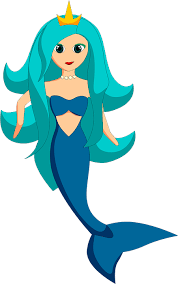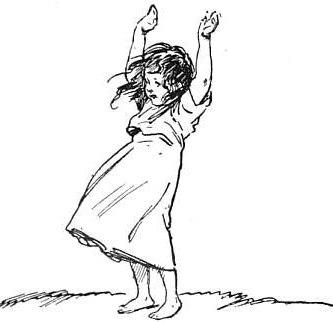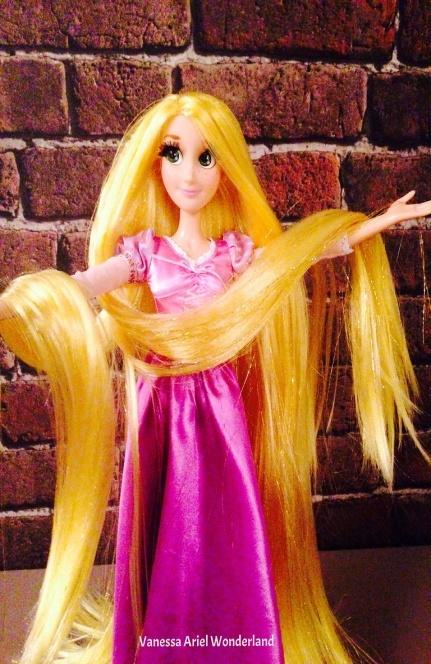English Grammar
One Step towards English Grammar
Amanda Explanation
Amanda Poem
Amanda MCQs
Q1- Who is the poet of the poem "Amanda"?
A) Leslie Norris
B) Robert Frost
C) Carolyn Wells
D) Robin Klein
Q2- What is the meaning of "slouching"?
A) Bend
B) Sit in a lazy way
C) lie down
D) bend backwards
Q3- What could Amanda do if she were a mermaid?
A) be in the green sea
B) lead a relaxing life
C) All of the above
D) None of the above
Q4- Name the literary devices used in the line "Stop that slouching and sit up straight".
A) Anaphora
B) Assonance
C) Metaphor
D) Alliteration
Q5- Name the literary device used in the line "Don't bite your nails, Amanda! Don't hunch your shoulders,
Amanda!"
A) Anaphora
B) Enjambment
C) Metaphor
D) Alliteration
Q6- What does she want to do as an orphan?
A) walk freely in the streets
B) play in dust with bare feet
C) All of the above
D) None of the above
Q7- Name the literary device used in the line "freedom is sweet"
A) Anaphora
B) Enjambment
C) Metaphor
D) Alliteration
Q8- What does she imagine being when she pictures herself in a tower?
A) Mermaid
B) Orphan
C) Rapunzel
D) None of the Above
Q9- What does she picure herself as in the last stanza?
A) Mermaid
B) Orphan
C) Rapunzel
D) None of the Above
Q10- What will Amanda's behaviour make people think?
A) her mother loves her
B) her mother harasses her
C) her mother is understanding
D) both 1 and 3
ANSWER KEY
1
D
2
B
3
C
4
D
5
A
6
C
7
C
8
C
9
D
10
B
Present Perfect
Present Perfect
Definition
The
present perfect tense is used to describe the actions that are completed in the
present. The actions may start in the past and continued until the present
time.
Formula / Structure
The formula for
affirmative, negative and question sentences is given here.
Affirmative Sentences
Formula for
affirmative sentences.
Subject
+ has/have + past participle(V3) + object
He/She/It
+ has + past
participle(verb-3)+obj
I/We/They/You
+ have + past participle
Examples
They
have performed the duty.
Kohima
has done her work.
- have They performed the
duty?
- Has She
not informed me about her
decision.
Negative Sentences
Subject
+ has/have + not + past participle(V3) + object
Examples
- They have
not performed the duty.
- She has
not informed me about her decision.
Interrogative Sentences
Has/have
+ subject + past participle(V3) + object + ?
Examples
- Have they performed the duty?
- Has she informed me about her
decision?
Examples
Affirmative
Sentences
- He has
spilt milk.
- I have
visited Paris three times.
- Ram has
taken her meal in the afternoon.
- The
court has given its verdict today.
- Jimmy has
attended the business meeting.
- The
chef has cooked the meal.
- She has
been at work since 6 a.m.
- I have
learned my lesson.
- I have
drunk two cups of coffee today.
- He has
stopped responding to my emails.
Rules / Usage
|
Rules/Usage |
Example |
|
To show the work
that is recently completed. |
She has just
baked the cake. |
|
For a specific
moment of time. |
I have lived in
this city since 2011. |
|
How long actions continued? |
He has had a
pup for two years |
|
To express the time
period |
They have
been at duty for 8 hours. |
|
To describe the
finished or completed actions. |
He has taken the
exam today. |
|
Announcement in
media |
The
corona-virus has damaged the economy of the world. |
Negative
Sentences
- He has
not spilt milk.
- I have
not visited Paris three times.
- Roshana has
not taken her meal in the afternoon.
- The
court has not given its verdict today.
- Jimmy has
not attended the business meeting.
- The
chef has not cooked the meal.
- She has
not been at work since 6 a.m.
- I have
not learned my lesson.
- I have
not drunk two cups of coffee today.
- He has
not stopped responding to my emails..
Interrogative
Sentences
- Has he spilt milk?
why has he spilt milk ?
- Have I visited Paris three times?
with whom have I visited the paris three times?
How many times have
I visited Paris?
- Has Roshana taken her meal in the
afternoon?
When has Roshan taken his meal ?
- Has the court given its verdict today?
why Has the court given its verdict today?
- Has Jimmy attended the business
meeting?
with whom has
Jimmy attended the business meeting?
- Has the chef cooked the meal?
where has the chef
cooked the meal?
- Has she been at work since 6 a.m.?
why has she been at work since 6 am?
- Have I learned my lesson?
when have I learned my lesson?
- Have I drunk two cups of coffee
today?
when have I drunk two cups of coffee ?
- Has he stopped responding to my email?
- why Has he stopped responding to
my email ?
12. Exercises
1. He _______________ to the office. (not come)
2. Jimmy _______________ a bike since 2018. (has)
3. I ________________ this novel twice. (read)
4. Snake charmer ______________ bagpipe in his
hand. (has)
5. Who _______________ you? (deceived)
6. I _______________ at home for three months.
(stay)
7. The company ______________ a bonus salary for
its employees. (announce)
8. He _______________ off the stairs. (fall)
9. Tom _______________ some flowers. (plant)
10.
The sales manager
______________ the target of sales for this quarter. (achieve)
Answers
1. He has not come to the
office.
2. Jimmy has had a bike since
2018.
3. I have read this novel twice.
4. Snake charmer has had bagpipe
in his hand.
5. Who has deceived you?
6. I have stayed at home for
three months.
7. The company has announced a
bonus salary for its employees.
8. He has fallen off the stairs.
9. Tom has planted some flowers.
10.
The sales
manager has achieved the target of sales for this quarter.
AMANDA
About the Poet
Robin Klein is an Australian author of books for children. She writes Children’s and young adult fiction. Some of her famous books are Hating Alison Ashley, People might hear you, etc.
Introduction to the lesson
Robin Klein has expressed the views of a little girl, Amanda who is constantly pointed out by her mother for making mistakes. Mistakes which she considers so as they are not part of the code of good conduct laid out by the society in which we live.
Amanda Summary of the poem
The poem describes a girl named Amanda and her mother who is nagging her for her mistakes. She is first pointed out most probably by her mother for biting her nails and for not sitting in the right posture. The mother also feels that Amanda sits in a very lazy manner. To this, Amanda imagines herself as a mermaid who lives a calm and relaxing life in the beautiful green sea. Further, she is nagged for not cleaning her room and shoes and also for not doing her homework. She then imagines herself to be an orphan because she is now fed up of being watched by her parents continuously. She says that she would have enjoyed her freedom then, by making the patterns of her bare feet on the sand and would live a peaceful life. Next, Amanda is scolded for eating too many chocolates as this causes pimples. She is also scolded for not listening to her mother. So, now Amanda thinks of being Rapunzel, a character from a fairy tale and wants to live in a huge tower like her. In the tower she will be alone and will live a peaceful life and will never allow anyone to come in. Finally, the mother asks her to stop being moody because she doesn’t want anyone to blame her for harassing her daughter. At this time the poet has not written any reaction from Amanda’s side. This constant nagging has made her so sad that she has even stopped to imagine herself as someone else. She used to do so in order to escape from tower.
Amanda Poem and explanation

Don’t bite your nails, Amanda!
Don’t hunch your shoulders, Amanda!
Stop that slouching and sit up straight,
Amanda!
(There is a languid, emerald sea,
where the sole inhabitant is me—
a mermaid, drifting blissfully.)
Word meanings
Hunch: bend
Slouching: sitting in a lazy way
Languid: relaxed
Emerald: here, green color
Inhabitant: resident
Drifting: carried slowly by the water
Blissfully: happily
The poet is describing Amanda, a little girl who is always pointed out by her mother for her mistakes and how she imagines her life to be. The poet says that the mother is pointing out Amanda for biting nails which is a bad habit. Next she asks her to sit straight without bending her shoulders. Amanda who has habit of bending her shoulders and sitting lazily is being pointed out because her mother wants her to sit in the right posture. At this point of time, when she is being scolded by her mother, she imagines herself to be in a deep green sea. She says that she wants to be the only resident of this beautiful green sea. She imagines herself like a mermaid who is alone there and leads her life in a very relaxing way. She says that she wants to be carried away by the current of water and feel the relaxing environment there.
Literary devices:
Anaphora: Repeated use of a word at start of two or more lines (don’t bite… don’t hunch)
Assonance: use of vowel sound ‘o’ (don’t hunch your shoulders)
Rhyme: aaba ccc (Amanda, Amanda, straight, Amanda, sea, me, blissfully)
Metaphor: use of word emerald sea for green colour of sea being similar to the colour of emrald
Repetition: use of word ‘Amanda’
Imagery: drifting blissfully
Alliteration: ‘Stop that slouching and sit up straight’ - ‘s’ sound is being repeated at the start of closely placed words.
Allusion: ‘mermaid’ is a well known imaginary creature.

Did you finish your homework, Amanda?
Did you tidy your room, Amanda?
I thought I told you to clean your shoes,
Amanda!
(I am an orphan, roaming the street.
I pattern soft dust with my hushed, bare feet.
The silence is golden, the freedom is sweet.)
Word meanings
Orphan: A child whose parents are dead
Hushed: quiet and still place
Here the poet says that Amanda’s mother is inquiring her about whether she has done her homework or not? And then she asks her whether she has cleaned her room or not. Moreover she is also reminded to clean her shoes. So, here we can see that the mother is constantly asking her questions regarding her homework being done or not or whether she had cleaned up her room and shoes or not. But on the other hand, while Amanda is listening to her mother’s instructions, she imagines herself to be an orphan who is roaming in the streets. This means that she imagines if she would have been without parents she would have walked freely in the streets. She would have drawn designs on the soft dust with her uncovered feet very quietly. So, we can see that she thinks opposite to her mother. Her mother wants her to keep everything neat and clean. But Amanda wants to play in dust with her bare feet. Moreover, she is so fed up of these constant instructions from her mother, that she says silence is golden which means that silence is very crucial and precious. She further says that freedom is sweet. This means she never feels free when she is with her mother.
Literary devices:
Anaphora: Repeated use of a word at start of two or more lines (did you finish….did you tidy)
Rhyme: Rhyme scheme is aada eee (Amanda, Amanda, shoes, Amanda, street, feet, sweet)
Assonance: use of vowel sound ‘o’ (Thought, told, you, your, shoes)
Repetition: use of word ‘Amanda’
Metaphor: silence is golden - silence is said to be glorious like golden colour
freedom is sweet - freedom is said to be sweet in taste.

Don’t eat that chocolate, Amanda!
Remember your acne, Amanda!
Will you please look at me when I’m speaking to you,
Amanda!
(I am Rapunzel; I have not a care;
life in a tower is tranquil and rare;
I’ll certainly never let down my bright hair!)
Word meanings
Acne: Pimples
Rapunzel: A girl in the fairy tale by Brothers Grimm
Tranquil: calm, quiet
Rare: uncommon
Important Videos Links
https://youtu.be/mbHSd-7ylKM
https://youtu.be/n3oN1CGK22w
Next, Amanda’s mother is disallowing her to eat chocolates. She reminds her of pimples that Amanda faces due to eating chocolates. At last she scolds her for not paying attention to what her mother says. At this moment Amanda imagines herself to be Rapunzel. Rapunzel was a character from a fairy tale that was captured in tower by a witch. The witch used to climb the tower with the help of long hair of Rapunzel that were let down by her through the window. So, now Amanda wants to be Rapunzel because she feels that life in the tower will be peaceful and unusual. She thinks she will be free and live in a peaceful environment in the tower. She also confirms to herself that she will never let her hair down to anyone so that nobody could come to her in the tower.
Literary devices:
Allusion: use of famous fairy tale character Rapunzel
Rhyme: rhyme scheme aafa ggg (Amanda, Amanda, you, Amanda, care, rare, hair)
Assonance: use of vowel sound ‘e’ and ‘o’ (Will you please look at me when I’m speaking to you
Consonance: use of sound ‘r’ (I am Rapunzel; I have not a care …..Bright hair)
Repetition: use of word ‘Amanda’

Stop that sulking at once, Amanda!
You’re always so moody, Amanda!
Anyone would think that I nagged at you,
Amanda!
Word meanings
Sulking: be in a bad mood
Moody: unstable
Nagged: harass
Amanda’s mother now warns her for behaving in a very odd manner. She asks her to stop being in a bad mood. Moreover she blames her of having such an unstable mood. She also scolds her by saying that her behavior will one day make people think that Amanda was constantly being harassed by her mother. So, here we can say that though Amanda is always pointed out by her mother on every small thing but she can’t react to this. If she reacts towards this by getting emotional her mother takes this against her sense of pride and scolds her that she should not behave like this as others would think that Amanda’s mother is very dominating towards her child.
Literary Devices:
Alliteration: ‘Stop that sulking’ - ‘s’ sound is repeated at the start of closely placed words
Repetition: use of word ‘Amanda’
Rhyme scheme: aaha (Amanda, Amanda, you, Amanda)